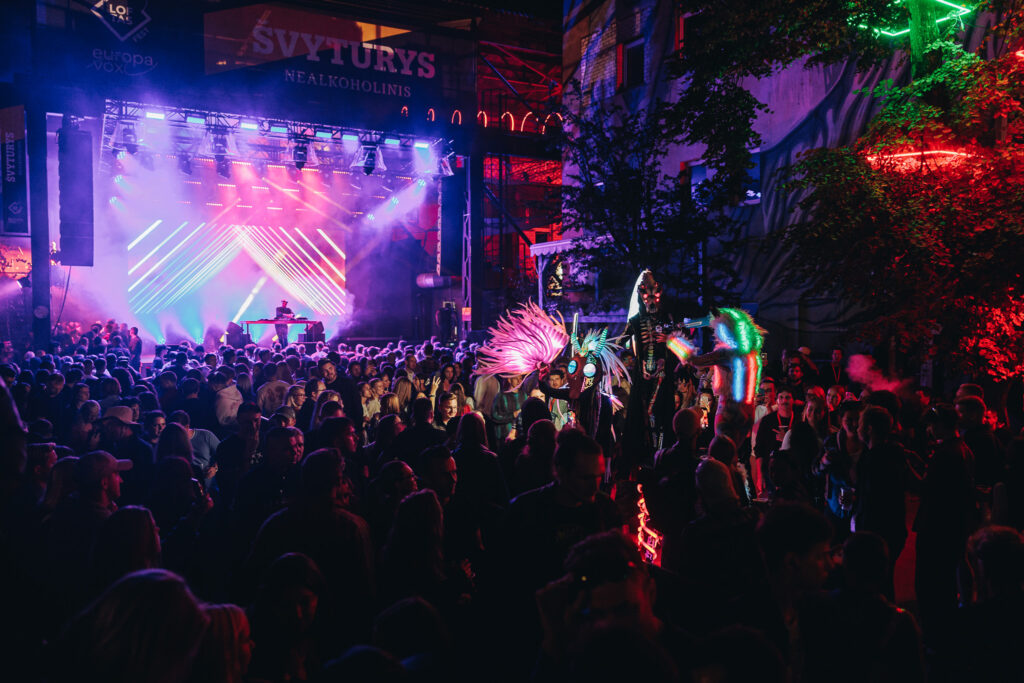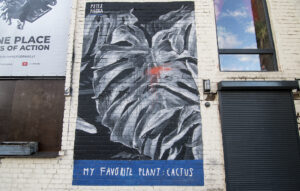
Electrotechnical factory established in 1948
The south-western part of Vilnius New Town took on its industrial appearance in the 20th century. In the beginning of the 20th century. The railway then came into being, and factories and warehouses grew up alongside it to service it. The growth of the neighbourhood, which had stalled somewhat between the wars, gained incredible momentum in the post-war period.
Industrial giants sprang up one after the other, in some places in grassy areas and in others in former housing estates. One of these was the Elfa electrical engineering factory, built in 1948.
In the area of Vytenis-Kauno-Švitrigailos-Paneriai Streets, besides the usual workers, German prisoners of war were also employed in the construction.
Between 80 and 8 300 employees
Elfa started as a relatively small factory with 80 employees, specialising in general-purpose Ural motors and low-power motors for a wide range of household appliances: refrigerators, washing machines, audio equipment. Even at that time, Elfa was proud that if a refrigerator was made in the Soviet Union, it had to have an Elfa engine. Over time, more factories in different republics supplied these appliances, but the Vilnius-based company maintained a significant position.
In 1955, the factory began to produce what it is best known for – tape recorders and turntables. “Elfa-6, Daina, Spalis, Gintaras are just a few of the names familiar to the older generation. The products were exported not only to other local republics but also to Western countries. One of the products, the “Echo” tape recorder, was presented as a distinctively designed device to match Soviet furniture. In 1984, the company employed around 8300 people. Significant expansions followed one after the other until the Elfa factory was producing 152 000 tape recorders a year.


In 1984, life here was boiling hot
The legendary former ELFA factory quarter was, according to historical sources, like a town within a town. The factory had music ensembles, sports clubs, stage competitions, sports tournaments and a museum. “Elfa, like most other factories, had its own newspaper called “Elfietis”. It contained the latest technological news, internal affairs of the factory and jokes. Later on, the factory also started another innovative activity: the production of foreign language study rooms.
The factory grounds included a park with a fountain, a sculpture park, a sauna and a canteen. It is interesting to note that men and women worked in separate rooms and usually met only in the canteen or in the yard.
1993 Elfa factory goes bankrupt
When Lithuania regained its independence, Elfa suffered the typical fate of Soviet-era industrial companies.
At the beginning of 1990, the Gusev micro-controller plant left the association, which had a negative impact on the company’s overall performance. The company decided to start producing cassette audio recorders, as well as mixers in cooperation with the Romanians and video recorders with the Japanese. However, the factory went bankrupt in 1993.


One of the first ‘Lofts’ photos. Photo by Živilė Diavara.
Industrial site abandoned until 2009
For almost 2 decades, not only Elfa, but also most of the upper part of the post-industrial part of Naujamiestis (Uptown) (Sparta, Elektrit, Lelija) was abandoned, with sporadic production, industrial and warehousing facilities.
At that time, Lithuania had only spaces adapted to individual cultural activities – concert halls, cinemas, theatres, picture galleries. Cultural centres in the districts were associated with exclusively Lithuanian folk and low-quality pop events. Clubs in the cities were mainly upmarket and posh. There was no place for other formats, creative events or underground raves. They were already taking place sporadically in different venues, often outside Vilnius. At the end of 2009, during the economic crisis, Victor Diawara and Živilė Diawara found one of the buildings in the area while looking for a venue. They decided to set up the first multifunctional cultural centre in Lithuania, open to different cultures and subcultures.
2010 m. duris atvėrė Menų fabrikas „Loftas”

Arts Factory ‘Loftas’. Photo by Lieju Kadrus.

‘Loft Fest’23’. Photo by Evelina Sabaliauskaitė
2012 – The first Loftas Fest
Open Gallery opens in 2016


Elfa Yard starts to form in 2018
After the Lofts, conversions of this urban courtyard began to take place around it, which began to shape the face of not only this block, but also the entire New Town district – creative, free and multicultural. The changing face of the High Town also attracted real estate developers, who converted old factory buildings into liveable lofts. The area is rich in industrial heritage, original conversions, and is home to a large number of creative, modern people with a love of loft culture and unconventional solutions. Soon, enterprising young people started to develop here, eventually forming the ELFA KIEMAS community.
Vilnius “Aukštamiestis”


Local gastrobar Elfa is established in 2019
The Elfa gastrobar, located in the legendary former factory premises, is not only a place to come and relax after work, but also to sample a variety of beers or fancy cocktails, enjoy a delicious meal, and visit the museum of the former Elfa factory, listen to the band and dance, but also meet neighbours who live or work in the area, or maybe friends attending a Lofts event, who you can talk to, or if you don’t know them, get to know and get involved in the community.
MOREThe gallery now houses more than 50 drawings on factory walls, impressive large-scale light installations and sculptures by Lithuanian and foreign artists. More than 50,000 Vilnius residents and visitors a year visit the gallery.
VISION OF THE FUTURE: A contemporary art project in the New Town district – all buildings transformed into works of art.